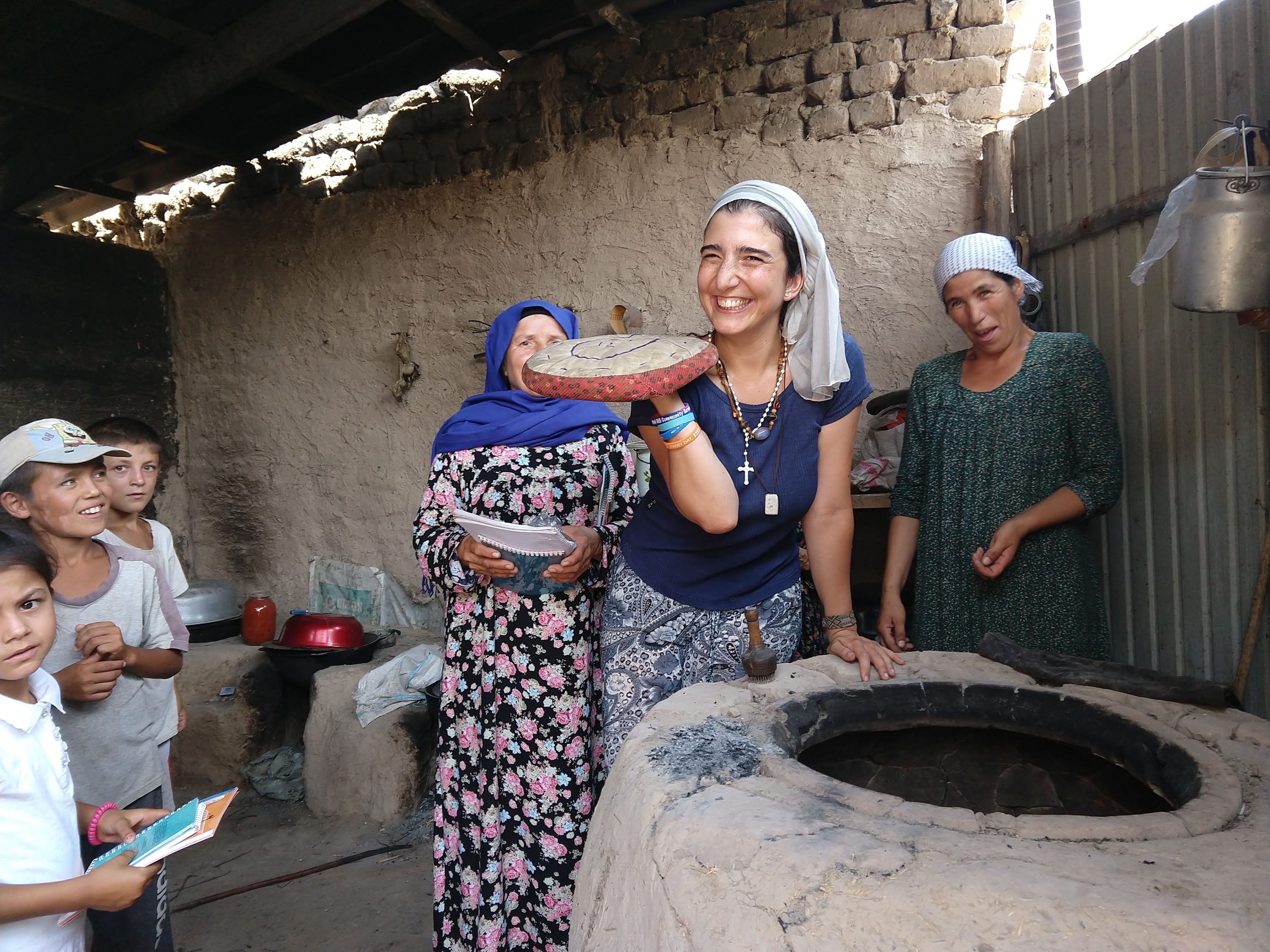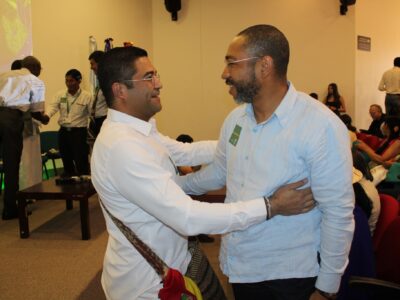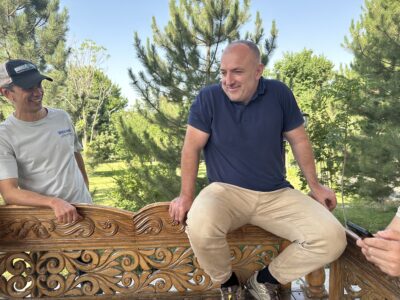
Food truly unites us all. It is a cultural experience and being immersed in another culture opened my eyes to foods and traditions that enhanced my life in many ways.
Last month, I returned home to Washington, D.C., from a short-term volunteer assignment with ACDI/VOCA through the USAID-funded Farmer-to-Farmer Program in Europe, Caucasus, and Central Asia. My assignment was for three weeks in Tajikistan, a Central Asian country known for its rugged mountains.
As a registered dietitian nutritionist, my goal was to partner with local communities to improve nutritional outcomes. During my time there, I met with groups of women in their homes to teach them about healthy diets and nutrition. After one training, the women showed me how they cook bread, which they eat with every meal and prepare from scratch. Bread from the villages is the freshest and tastiest. I also developed nutritious recipes for children under the age of two, who are at a critical stage in their development, and held meetings about household decision making around cooking and buying food.
Healthy diets not only address the obesity epidemic, but also help to reduce hunger. That is why healthy diets is the theme of this year’s World Food Day, recognized by the Food and Agriculture Organization of the United Nations on October 16. Ending world hunger is not only about addressing hunger, but also nourishing people and the planet. Having access to vegetables, which are high in fiber and water, provides the bulk and nutrients the body needs to stay full and well-nourished. For this reason, my volunteer assignment supported a larger program that was providing the tools and skills locals needed to grow new varieties of vegetables on their farms to add to their diets. Many households started growing broccoli, sweet potatoes, tomatoes, beets, eggplant, and other vegetables for the first time.
The women I met with showed excitement about learning new recipes as ways to incorporate more vegetables in their meals. In Tajikistan, and many parts of the developing world, women are already the nutrition leaders of the family because they make food decisions and prepare the meals. With more education and resources, the women felt empowered and confident they could keep their families nourished and healthy.
Each person I met was friendly and welcoming and made me feel a part of their community. The trip increased my appetite to apply my expertise in nutrition to helping ensure everyone around the world is well fed. We can all play a part. I challenge you to become an advocate for healthy eating and ending hunger! Here are some ideas to get you started:
- Visit or call your state representatives to express your concerns about world hunger and the need for increased funding.
- Sign a petition to increase global nutrition funding.
- Buy food responsibly; appreciate food’s nourishing value and avoiding wasting it.
No matter where one lives, we all need to cover our basic needs to achieve our full potential. Nutrition is at the core of these needs because it is essential for prospering and fulfilling daily duties such as work, school, and household chores. Locally, each of us can be part of the solution to alleviate hunger worldwide. What will you do about it?
Comments







